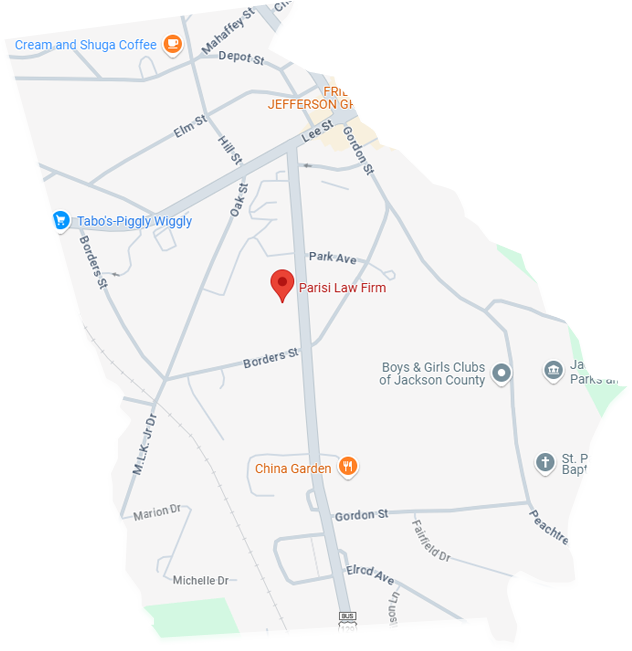Dog bites can be traumatic and complicated. In the bustling state of Georgia, understanding who is liable is crucial for victims seeking justice and compensation. This blog will walk you through the key factors to consider when proving liability in dog bite cases. Designed specifically for those in the Peach State, this guide aims to clarify the complexities, offering practical tips and insights to help you or your loved ones make informed decisions.
Understanding Georgia’s Dog Bite Laws
Georgia has specific statutes that dictate how dog bite cases are handled. The state’s “one-bite rule” plays a pivotal role in determining liability. This rule essentially states that a dog owner may not be held liable for a bite if they had no prior knowledge of their dog’s aggressive tendencies. However, once it’s established that the owner knew or should have known that their pet was capable of biting, they can be held responsible.
The one-bite rule means that the dog’s owner gets a “free pass” on the first bite, provided they had no reason to believe their dog would bite. This doesn’t mean the owner is automatically off the hook; factors like whether the dog was on a leash, confined, or provoked will also be considered.
There are exceptions to Georgia’s one-bite rule. For example, if the dog was off-leash in a leash-required area or if the owner violated local ordinances regarding animal control, liability can still be established even if it was the dog’s first bite.
Negligence is a critical factor in dog bite cases. If an owner fails to control their dog adequately or disregards known risks, they can be held liable. Proving negligence involves demonstrating that the owner failed to act responsibly, directly leading to the bite incident.
Gathering Evidence for Your Case
Evidence is the backbone of any legal claim. The more detailed and comprehensive your evidence, the stronger your case will be. This includes medical records, photographs of injuries, witness statements, and any prior complaints or incidents involving the dog.
Immediately after a dog bite, seek medical attention. Medical records not only document the severity of your injuries but also serve as crucial evidence in court. Take clear photographs of your injuries from different angles and stages of healing, as these visual proofs can significantly bolster your claim.
Eyewitnesses can provide valuable third-party accounts of the incident. Their statements can corroborate your version of events, making your case more credible. Collect contact information from anyone who saw the bite occur and ask them to provide a written statement.
If the dog has a history of aggression or if there have been previous complaints against the owner, this information can be critical in proving liability. Check public records or speak with local animal control to gather any relevant background information.
The Importance of Legal Representation
Dog bite cases can be legally intricate, requiring a nuanced understanding of both state laws and local ordinances. Hiring an experienced attorney can significantly improve your chances of securing a favorable outcome.
Look for an attorney who specializes in personal injury or animal attack cases. Their expertise will help you navigate the complexities of the legal system, from filing paperwork to representing you in court. Ask for referrals, check online reviews, and schedule consultations to find the best fit.
Your attorney will handle all legal aspects of your case, including gathering evidence, negotiating with insurance companies, and representing you in court. They will also ensure that you meet all filing deadlines and procedural requirements, preventing your case from being dismissed on technicalities.
Many personal injury attorneys work on a contingency fee basis, meaning they only get paid if you win your case. This can make legal representation more accessible, as you won’t need to pay upfront fees. Discuss payment structures during your initial consultation to understand all costs involved.
Understanding Damages and Compensation
Compensation in dog bite cases can cover medical expenses, lost wages, pain and suffering, and more. Knowing what you can claim will help you build a comprehensive case and seek fair compensation.
Medical expenses are often the most straightforward form of compensation. This includes immediate medical costs like emergency room visits and long-term care such as physical therapy or reconstructive surgery. Keep all medical bills and receipts as evidence.
If your injuries prevent you from working, you can claim lost wages. In severe cases, where the bite impacts your ability to earn in the future, you may also be entitled to compensation for loss of earning capacity. Provide documentation of your income and any work missed due to your injuries.
Pain and suffering encompass both physical pain and emotional distress caused by the bite. While these damages are more subjective and harder to quantify, they are essential for achieving full compensation. Your attorney can help you determine an appropriate amount based on the specifics of your case.
Defenses Against Dog Bite Claims
Dog owners may employ various defenses to avoid liability. Understanding these can help you better prepare your case and counter any arguments they might present.
One common defense is that the victim provoked the dog. Provocation can include teasing, hitting, or even unintentionally startling the dog. Gathering evidence to prove that you did not provoke the dog is crucial to counter this defense.
If the bite occurred while you were trespassing on private property, the owner might argue that they are not liable. However, exceptions exist, especially if the property was not adequately marked with warning signs. Knowing the specifics of where and how the incident occurred will help address this defense.
The assumption of risk defense argues that the victim knowingly put themselves in a position to be bitten. This can apply in situations where the victim was aware of the dog’s aggressive tendencies but chose to interact with it anyway. Documenting your lack of knowledge about the dog’s behavior can help mitigate this defense.
The Role of Insurance Companies
Insurance companies often play a significant role in dog bite cases. Understanding how they operate and what to expect can help you manage interactions and negotiations more effectively.
Many homeowners’ insurance policies cover dog bite incidents. However, not all breeds are covered, and some policies may have specific exclusions. Review the owner’s policy details to understand what coverage is available.
Insurance adjusters will investigate the incident and determine the compensation amount. Be cautious when speaking with adjusters, as their primary goal is to minimize the payout. Provide accurate information but avoid giving recorded statements without consulting your attorney.
Insurance companies may offer quick settlements to resolve the case efficiently. While tempting, these initial offers often undervalue your claim. Consult with your attorney before accepting any settlement to ensure it adequately covers all your damages.
Filing a Lawsuit
If negotiations with the insurance company fail, filing a lawsuit may be necessary. Understanding the process and what to expect can help you prepare for this legal step.
Your attorney will gather all necessary evidence, draft legal documents, and prepare for courtroom proceedings. This preparation phase is crucial for building a strong case and anticipating potential defenses.
Courtroom proceedings involve presenting your case before a judge or jury. Both parties will present evidence, call witnesses, and make arguments. Your attorney will guide you through each step, ensuring you understand the process and what to expect.
Outcomes can range from a favorable verdict awarding you compensation to the dismissal of your case. Understanding possible outcomes and being prepared for each scenario will help you manage expectations and plan your next steps.
Legal Timeframes and Statutes of Limitations
Georgia has specific timeframes within which you must file a dog bite claim. Missing these deadlines can result in losing your right to seek compensation.
In Georgia, the statute of limitations for dog bite claims is two years from the date of the incident. Failing to file within this timeframe can result in the dismissal of your case.
Certain exceptions can extend the statute of limitations, such as if the victim is a minor or if the defendant leaves the state. Understanding these exceptions can help you determine the appropriate timeframe for your case.
Taking timely action ensures you preserve your right to seek compensation. Contacting an attorney soon after the incident can help you meet all necessary deadlines and build a strong case.
Seeking Legal Representation
Proving liability in dog bite cases in Georgia involves understanding state laws, gathering comprehensive evidence, and navigating legal complexities. By following the steps outlined in this guide, you can build a strong case and seek the compensation you deserve.
If you or a loved one has been a victim of a dog bite, don’t hesitate to seek legal advice. An experienced attorney can provide invaluable guidance and support throughout the process. For more information or to get started, reach out to our team today.
By taking action now, you can ensure that your rights are protected and take the necessary steps toward recovery and justice.






